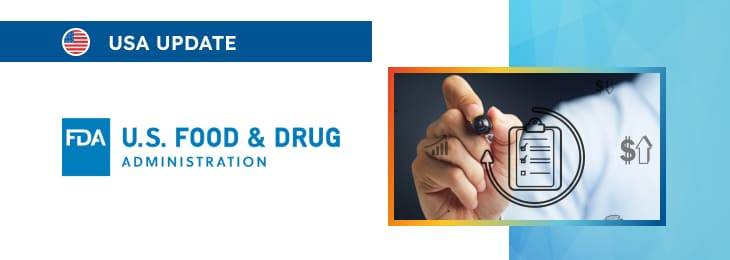The new article describes the matters related to periodic evaluations the authority intends to conduct to ensure compliance with the applicable regulatory regiments.

Table of content
It also explains situations where it could be decided to suspend or withdraw the relevant recognition.
The Food and Drug Administration (FDA or the Agency), the US regulating authority in the sphere of healthcare products, has published a guidance document dedicated to 510(k) Third Party Review Program and Third Party Emergency Use Authorization (EUA) Review.
Once finalised, the guidance will provide an overview of the applicable regulatory requirements and additional clarifications and recommendations to be considered by medical device manufacturers and other parties involved to ensure compliance.
At the same time, provisions of the guidance are non-binding in their legal nature, nor are they intended to introduce new rules or impose new obligations.
Moreover, the authority explicitly states that an alternative approach could be applied, provided such an approach is in line with the existing legal framework. It has been agreed with the authority in advance.
The present document outlines FDA guidelines regarding the suspension, withdrawal, and international regulatory harmonisation for third-party 510(k) Review Organizations (3P510k ROs) and Emergency Use Authorization Review Organizations (3PEUA ROs).
In particular, the document states that the FDA has the authority, as per section 523(b)(2)(B) of the FD&C Act, to suspend or withdraw recognition of a 3P510k RO if it is substantially non-compliant with the requirements, poses a public health threat, or acts inconsistently with the Act’s purposes.
This process includes providing the organisation with notice and an opportunity for an informal hearing.
Prohibited Actions
The document further describes in detail which actions are considered prohibited. Specific actions are not permitted for 3P510k ROs under section 301(y)(1) of the FD&C Act. These actions include:
- Submitting false or misleading reports or recommendations;
- Disclosing confidential or trade secret information without written consent;
- Receiving bribes or engaging in corrupt activities related to their FDA-delegated responsibilities.
These prohibitions also apply to 3PEUA ROs, with additional specific requirements outlined in their contracts with the FDA.

Periodic Evaluation and Feedback
As explained in the guidance, the FDA plans to periodically evaluate the premarket reviews conducted by 3P510k and 3PEUA ROs and provide feedback to the involved specialists and reviewers.
This evaluation will be conducted at least once every three years or on a “for cause” basis. It includes inspections of the ROs’ facilities and records to ensure compliance with their application commitments and the FD&C Act.
Technical Competency and Nonconformity
3P510k ROs are required to demonstrate ongoing technical competency. Suppose an RO is found nonconforming to the FD&C Act’s section 523, posing a public health threat, or acting inconsistently with the Act’s purposes.
In that case, the FDA may suspend or withdraw recognition, following due notice and opportunity for an informal hearing.
Leveraging IMDRF Documents
The document also describes connections with the international regulatory framework.
The International Medical Device Regulators Forum (IMDRF), established in 2011, focuses on medical device regulatory harmonisation. It has developed documents outlining good regulatory review practices (GRRP), including criteria for reviewer competence, training, conduct, and expectations for Conformity Assessment Bodies (CABs) that perform regulatory reviews.
These documents finalised between 2017 and 2023, are aligned with the FDA’s criteria for third-party review organisations.
FDA acknowledges that third-party review organisations in compliance with IMDRF’s GRRP documents will likely meet most FDA requirements for 3P510k ROs and 3PEUA ROs.
Therefore, such organisations may leverage existing documents in their applications to the FDA and for ongoing recordkeeping, potentially streamlining the recognition process.
Conclusion
In summary, the present FDA guidance dedicated to 3P510k and 3PEUA ROs emphasizes compliance with statutory and regulatory criteria, the importance of maintaining technical competency, and adherence to ethical standards.
It also highlights the role of international collaboration and standardization in regulatory reviews, underscoring the potential for alignment and efficiency in global medical device regulation processes.
How Can RegDesk Help?
RegDesk is a holistic Regulatory Information Management System that provides medical device and pharma companies with regulatory intelligence for over 120 markets worldwide. It can help you prepare and publish global applications, manage standards, run change assessments, and obtain real-time alerts on regulatory changes through a centralized platform. Our clients also have access to our network of over 4000 compliance experts worldwide to obtain verification on critical questions. Global expansion has never been this simple.

